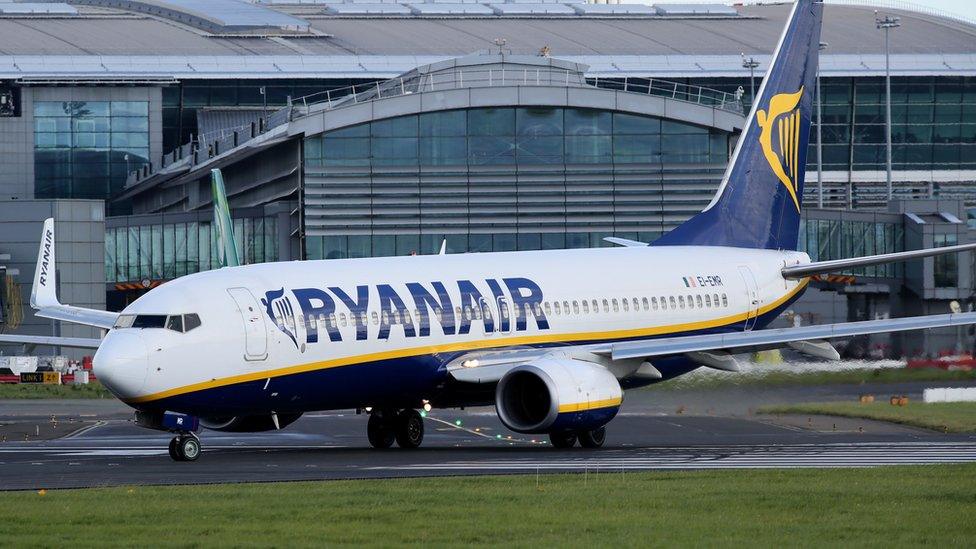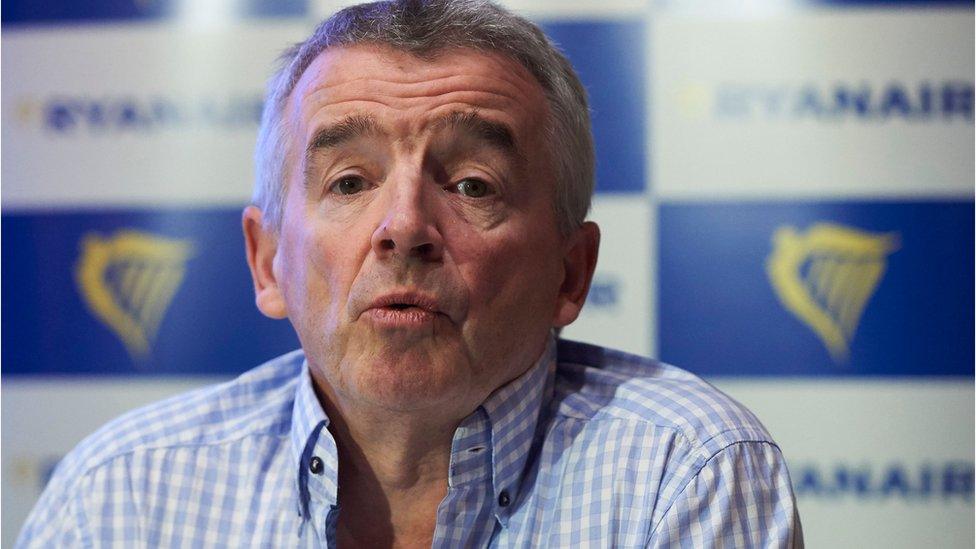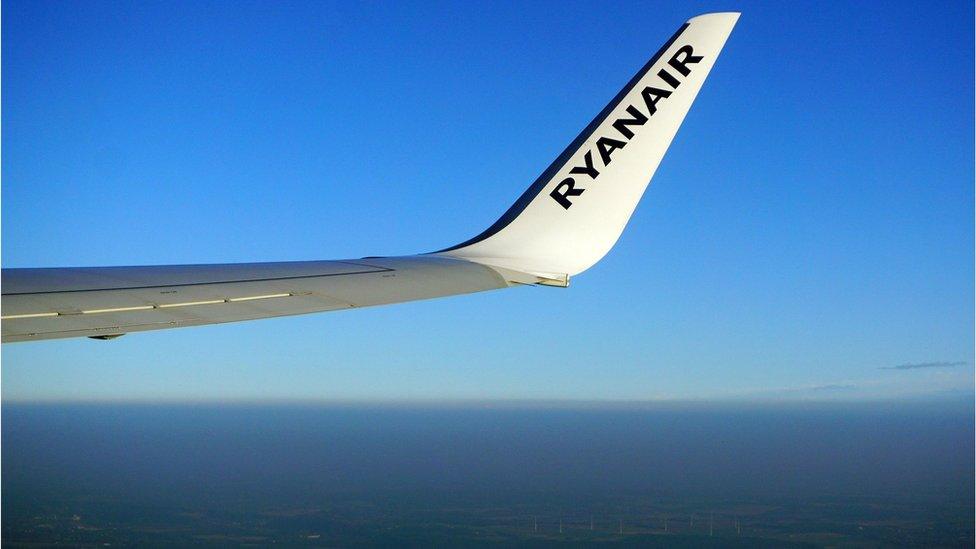Ryanair: Why it hasn't all gone quiet
- Published

At first glance, it seems that the turbulence surrounding Ryanair has subsided.
The low-cost airline said this week that 99% of customers affected by its cancellations in September and October have been given a new route or a refund. About 90% of those affected by its second wave of problems, the changes to its winter schedule through to March, have also been processed.
And with the departure of a top executive - the person responsible for the rostering of pilots - the airline is doubtless hoping that it can quickly get back to normal.
The trouble there is a group of its pilots who don't want that to happen.
Instead, they want to change the way the airline is organised - and the relationship it has with its staff.
The EERC
BBC Newsnight has spoken to several Ryanair pilots, and some people working with them, about their efforts to form a central body to represent the company's pilots across its 80-plus bases.
The airline has always preferred to communicate with pilots base by base, through so-called ERCs - employee representative committees, a structure created by Ryanair in lieu of a union. Several pilots say that these bodies rarely negotiate on behalf of pilots but are given take-it-or-leave-it offers by management.
The pilots are trying to create a European ERC (EERC), as well as regional or national ERCs for certain areas, to lobby the company's management for changes.
It is slow going, according to some involved. Trying to coordinate over 4,000 pilots spread across Europe, who work unpredictable hours, means obvious logistical headaches.
In the last few days, the pilots behind these efforts have also written to the company asking for assurances that they will not be disadvantaged or have action taken against them if their involvement in trying to organise the pilots becomes public.
Thus far, however, Ryanair appears to be sticking steadfastly to its policy of talking to pilots base by base.
The airline this week sent an internal message laying out the salary increases on offer to pilots in certain bases, arguing that the deal was better than the pay on offer at competitors like Norwegian and Jet2.
Hard line
But it took a hard line, refusing to meet with pilots through channels except its own ERC structure. It said:
"We will not enter into writing, or meetings, with competitor airline pilots/unions, or whatever they call themselves this week (RPG/REPA/EERC??) whose sole aim is to prevent you from accessing a big pay increase next month, through the existing ERC structure."
The company has maintained that unrecognised associations or groups of pilots, such as the Ryanair Pilot Group (RPG) and the Ryanair European Pilots' Association (REPA), are fronts for rival airlines' unions.
The message - signed by Eddie Wilson, chief people officer - added:
"If you continue to be misled by the false promises of unions…then you will delay or miss out on these big pay increases next month, and you will simply remain on your existing base agreements until they expire between 2020 and 2022."
Several pilots told the BBC that the company had this week been ramping up the pressure on individual bases, notably Madrid, to sign off on the package on offer - rather than trying to negotiate alongside other bases in Europe.
One said: "It looks like the same old Ryanair of the past - divide and conquer."

Open letter
On Thursday, however, one Ryanair captain went public with dissatisfaction among the pilot base. In a letter written to boss Michael O'Leary, Captain Imelda Comer wrote:
"As you know, the pilots issued a number of correspondences to the company, endorsed by the ERCs in 60 bases. Regrettably the company has either ignored these or claimed they were not from legitimate Ryanair pilots. I wish to confirm they were from the European ERC group which is exclusively made up of Ryanair pilots from several countries. The interim EERC represents the views of the collective pilot body, which wishes to proactively and constructively engage with the company to help resolve the current difficulties that continue to weigh on all of us."
Captain Comer reiterated the request that those involved in the EERC not have action taken against them. The letter also restated what it called the "pilots' requirements to address the ongoing difficulties", including permanent, local contracts and coordination between national and regional pilot teams.

Ryanair said in response:
"This letter from the so-called 'EERC' is entirely disingenuous and is signed by a contractor pilot who has already resigned and is leaving Ryanair on 31st October as she confirmed she is moving to Asia. We will not be corresponding with, or replying to, the false claims made by this so-called 'EERC'/RPG/REPA or any other front set up by competitor pilot unions."
Of course, as customer disruption subsides, the pressure Ryanair's pilots can bring to bear on the company also arguably fades. And offers of big pay increases, of up to €22,000 (£20,000) per captain according to the company, might prove tempting, despite the terms and conditions attached, which some pilots argue are unreasonable.
As Ryanair reminded its staff this week, its pilots have challenged the company's ERC structure before and failed. But against the backdrop of a global shortage of pilots, and the hiring season for experienced fliers ramping up, there could still be some bumps to come.